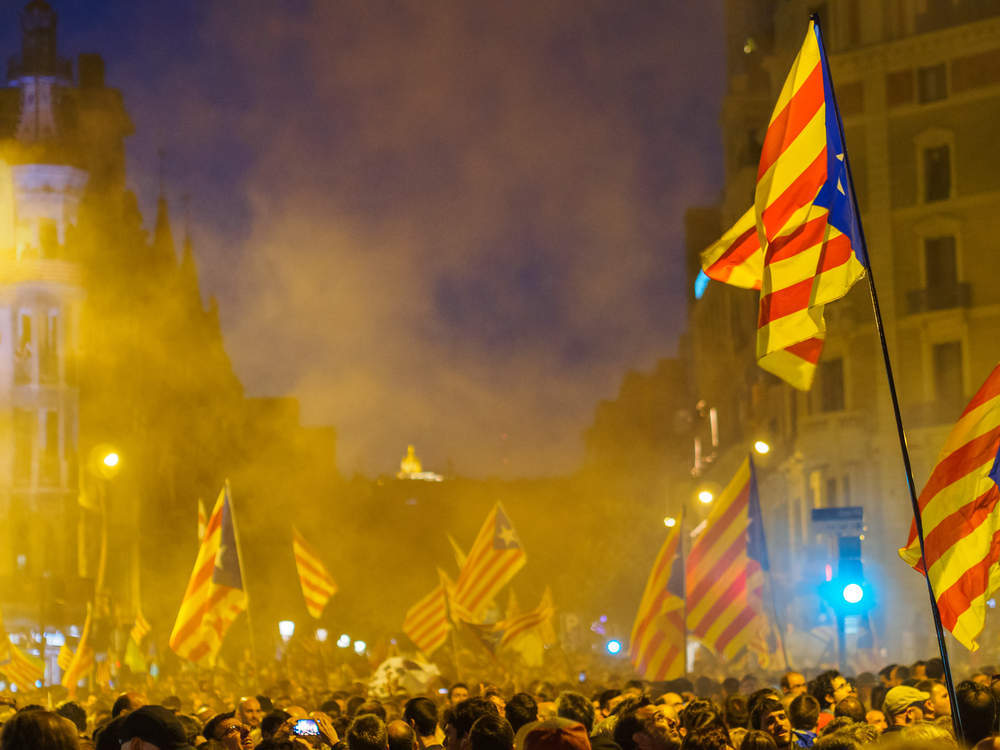The crisis in Catalonia has come to a head with ousted politicians of the regional government being charged with rebellion, sedition, and misuse of funds and jailed.
Whereas the majority of accused ministers turned up, Carles Puigdemont, the prominent leader of the Catalan government is in Belgium, persistently ignoring the order.
The recent events in the region have fuelled confusion and uncertainty in a country which is known for its political stability.
The confrontational stance of both the Catalan and Spanish governments has been exacerbating the situation, making increasingly difficult to predict the outcome of the crisis and its impact on the economy and the society of both parties.
Even though Catalonia occupies a small portion of the Spanish territory, its economic significance to the prosperity of the country is unquestionable.
With a population of 7.45m and an economy of €215.6bn, the region accounts for 16 percent of the country’s population and more than one-fifth of its GDP.
How well do you really know your competitors?
Access the most comprehensive Company Profiles on the market, powered by GlobalData. Save hours of research. Gain competitive edge.

Thank you!
Your download email will arrive shortly
Not ready to buy yet? Download a free sample
We are confident about the unique quality of our Company Profiles. However, we want you to make the most beneficial decision for your business, so we offer a free sample that you can download by submitting the below form
By GlobalDataCatalonia is also the industrial heartland of Spain, generating more than one-quarter of the total national exports.
A particularly important sector for Spain is tourism. Total tourism employment accounted for 10.8 percent of total employment in Spain in 2016, generating $1.3trn, according to GlobalData numbers.
Whereas several places around the country are popular for tourists such as the Canary islands, the Balearic Islands and Madrid, the region that receives the highest number of tourists is Catalonia, with Barcelona being one of the top tourist hubs in the world.
According to Mastercard’s Global Destination Index 2016, the vibrant city of Barcelona ranked twelfth in the world in terms of number of international overnight visitors, totalling 8.2m and 34m stays.
Similarly, with a total spending of $20.4bn, Catalonia is the region with the highest tourism spending in the country.
Early predictions by Exceltur, a non-profit alliance of tourist organisations promoting excellence in the industry point out to the slowdown of tourism this year from 4.1 percent to 3.1 percent.
Similarly, flight reservations to Barcelona have reportedly fell by 22 percent in the two weeks following the referendum violence in the city, while accommodation reservations have also noted a slight fall.
Tourists are very sensitive when instability suddenly erupts and often prefer to stay away from affected destinations in the short-term – as was the case in the aftermath of several terrorist incidents in European capitals.
However, given the fact that the memories of the public – including tourists – is rather ‘short’, after the initial wave of turbulence and uncertainty faded, tourism got back to normal.
The videos of police and voter clashes in Barcelona in early October travelled the world, scaring many potential travellers, causing the slowdown in reservations following the referendum.
Yet, in the case of Catalonia the impact of such events on the industry will depend on the stance that the Spanish and Catalan authorities will adopt.
Whereas an amicable solution will soon result in the rapid resumption of tourism – given also the large popularity of Barcelona as a tourist destination –, a confrontational attitude will exacerbate unrest, ultimately deterring a growing number of visitors from travelling to the region.
Such an outcome will have negative ramifications not only for the tourism industry but also for the economy of both Spain and Catalonia.
The stakes for the two regions are incredibly high; only a peaceful solution through a more open dialogue and willingness to negotiate a more flexible relationship between Catalonia and Spain could bring stability back to the country, ultimately facilitating tourism’s comeback.







